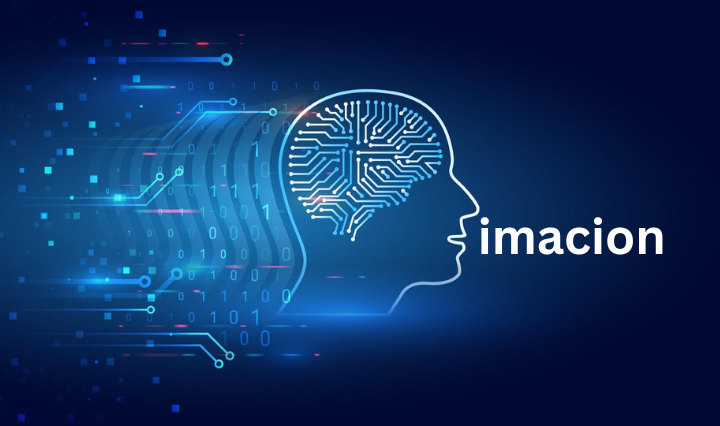Imacion is a fundamental aspect of human behavior that permeates various facets of our lives. From childhood development to cultural practices, and even in business strategies, imitation plays a crucial role. In this article, we delve into the intricacies of imitation, exploring its types, implications, and ethical considerations.
Table OF Contents
- 1 Introduction to imacion
- 2 Types of imacion
- 3 The Role of imacion in Learning and Development
- 4 Social Implications of imacion
- 5 Imacion in Business and Marketing
- 6 The Psychology Behind imacion
- 7 Cultural Aspects of imacion
- 8 The Dark Side of imacion
- 9 The Art of imacions
- 10 Ethical Considerations Surrounding
- 11 Overcoming imacions
- 12 Technology and Innovation
- 13 The Future
- 14 Conclusion
- 15 FAQs
Introduction to imacion
Imacion can be defined as the act of replicating or mimicking the behavior, actions, or characteristics of others. It is a natural phenomenon observed in humans and other animals, serving as a means of learning, socializing, and transmitting culture.
Types of imacion
Physical imacion
Physical imacion involves replicating bodily movements or actions observed in others. This type of imitation is often seen in infants mirroring facial expressions or gestures of adults.
Behavioral imacion
Behavioral imitation refers to copying the actions or behaviors of others, such as adopting a particular mannerism or following social norms observed in a group.
Cognitive imacion
Cognitive imacion involves mimicking the mental processes or thought patterns of others, such as problem-solving strategies or decision-making mechanisms.
The Role of imacion in Learning and Development
Imacion plays a vital role in childhood development, where children learn by imitating the actions and behaviors of their caregivers and peers. It is through imitation that they acquire language skills, social norms, and cultural practices.
Social Implications of imacion
In the realm of social behavior, imacion can influence individuals’ actions and attitudes. From fashion trends to political ideologies, people often imitate others to conform to societal norms or gain acceptance within a group.
Imacion in Business and Marketing
In the business world, imacion can manifest as copycat marketing strategies, where companies replicate successful products or branding techniques of their competitors. While imitation can lead to market saturation, it also raises ethical questions regarding intellectual property rights.
The Psychology Behind imacion
The phenomenon of imacion has been studied extensively in psychology, with researchers exploring its neural mechanisms and cognitive processes. Mirror neurons, for example, are believed to play a crucial role in facilitating imitation by mirroring observed actions in the brain.
Cultural Aspects of imacion
Cultural transmission heavily relies on imacion, as individuals learn and perpetuate cultural practices through imitation of elders and peers. From rituals to artistic expressions, imitation shapes the cultural identity of communities around the world.
The Dark Side of imacion
While imacions is often regarded positively, it can also have negative consequences, such as plagiarism or the perpetuation of harmful behaviors. Blind imitation without critical thinking can lead to stagnation and hinder innovation.
The Art of imacions
In the realm of art, the debate between originality and imacions has long persisted. While some artists strive for authenticity and innovation, others embrace imitation as a form of homage or reinterpretation of existing works.
Ethical Considerations Surrounding
Balancing the rights of creators with the freedom to imitate poses ethical dilemmas, particularly in fields like intellectual property law and innovation. Striking a balance between encouraging innovation and protecting original ideas is essential for fostering creativity.
Overcoming imacions
Encouraging creativity and critical thinking is key to overcoming mindless . By nurturing individuality and providing opportunities for experimentation, we can empower individuals to break free from the constraints of imitation.
Technology and Innovation
In the realm of technology and innovation, imacion plays a complex role. While imitation can facilitate the spread of knowledge and drive progress, it also raises legal and ethical concerns regarding intellectual property rights and fair competition.
The Future
As technology continues to advance, the study of is likely to evolve, with implications for fields such as artificial intelligence and human-computer interaction. Understanding the nuances of imitation will be crucial for navigating ethical and societal challenges in the future.
Conclusion
Imacion is a multifaceted phenomenon that influences various aspects of human behavior and society. Whether in learning, social interaction, or innovation, imitation shapes our experiences and cultural landscape. By understanding its significance and complexities, we can navigate its implications ethically and harness its potential for positive change.
FAQs
- What is the difference between imacion and emulation?
- While imitation involves replicating the actions or behaviors of others, emulation focuses on achieving similar outcomes or results through different means.
- How does imitation contribute to cultural diversity?
- Imitation facilitates the transmission of cultural practices and traditions across generations and communities, contributing to the richness and diversity of global cultures.
- Can imitation stifle creativity?
- Blind imitation without critical thinking can hinder creativity by limiting individual expression and innovation. However, selective imitation combined with originality can lead to creative synthesis and adaptation.
- Are there any benefits to imitation in the workplace?
- In the workplace, imitation can serve as a learning tool for acquiring new skills or best practices. Additionally, imitation of successful strategies or behaviors can improve performance and productivity.
- How can parents encourage healthy imitation in children?
- Parents can foster healthy imitation in children by providing positive role models, encouraging creativity, and offering opportunities for independent exploration and problem-solving.


1 Comment
Pingback: Bảie: A Cultural and Culinary Journey - themagazineinsight.com